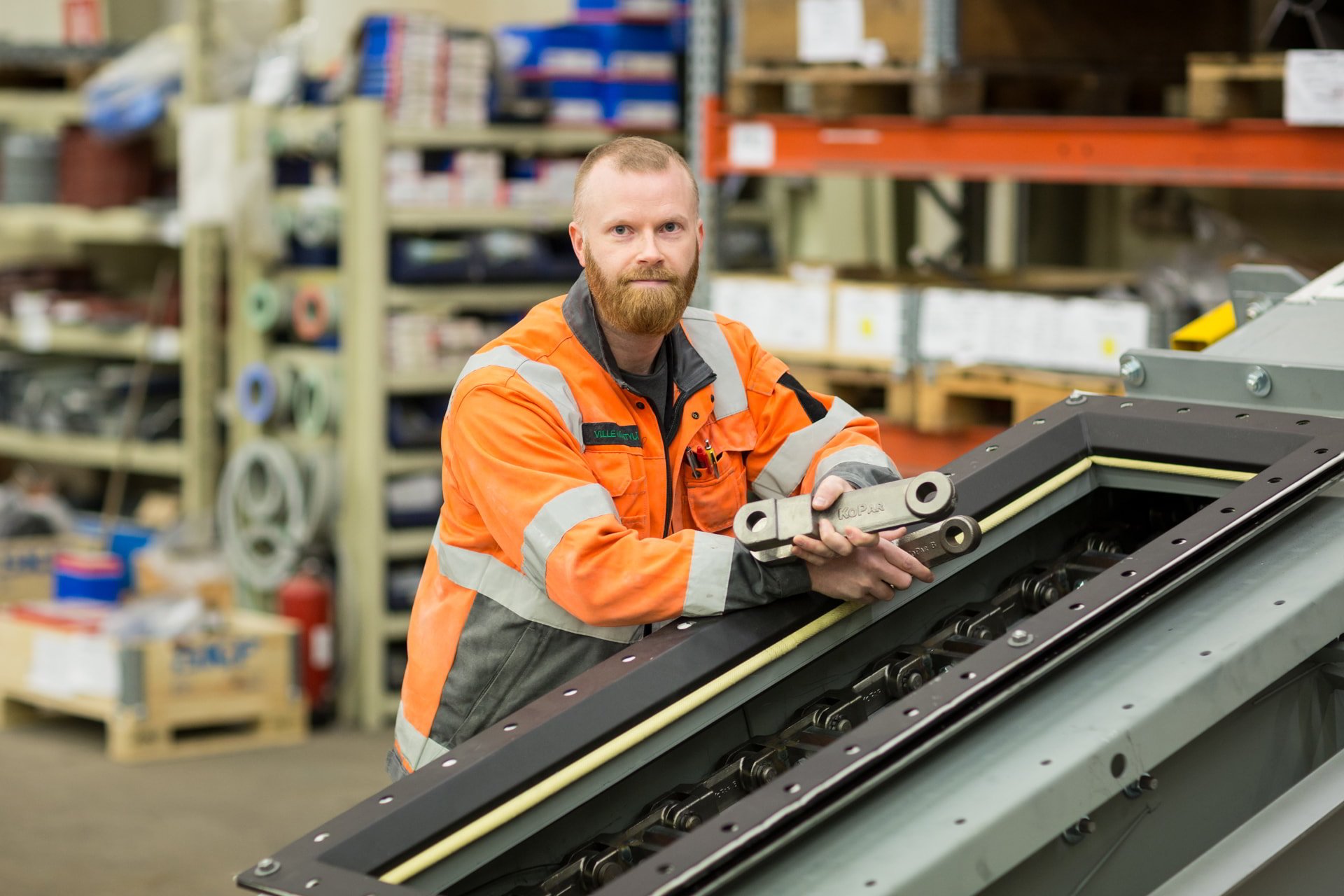What are chain conveyors most commonly used for?
Chain conveyors are essential in many industries where efficient and reliable material transport is crucial. One of the most common applications of chain conveyors is in the mining industry, where large quantities of raw materials, such as ores and aggregates, need to be moved between different stages of the production process. Chain conveyors are an excellent choice in these environments as they can handle heavy and abrasive materials without requiring constant maintenance.
The construction industry is also one of the largest users of chain conveyors. In this environment, they are used to transport large amounts of construction materials, such as sand and gravel, between sites. Chain conveyors ensure that materials arrive at the right place on time and safely, significantly enhancing the efficiency of construction projects.
How do chain conveyors work?
Chain conveyors operate with a simple yet effective mechanism. They typically consist of a chain that transports material either horizontally or vertically. The movement of the chain is powered by a motor that rotates the chain, thereby moving the attached bags or buckets.
Technically, chain conveyors are equipped with special components that make them suitable for various applications. For example, the chain material can be carbon steel or stainless steel, depending on the properties of the material being conveyed and the environmental requirements. These choices significantly affect the durability and performance of the conveyor.
Additionally, chain conveyors can include additional features such as a water cooling system, which allows for cooling of the material during transportation. Such technical solutions make chain conveyors highly versatile and suitable for demanding industrial processes.
What are the advantages of chain conveyors compared to other conveyor systems?
The durability and suitability of chain conveyors for heavy-duty use cannot be overstated. Unlike many other conveyor systems, such as belt conveyors, chain conveyors can handle extremely heavy and abrasive materials without their performance deteriorating over time. This makes them ideal for demanding industrial environments where operating conditions can be extreme.
Another significant advantage is their low maintenance costs. Chain conveyors are designed to withstand wear, meaning they require less frequent repairs or part replacements. This reduces downtime and improves the efficiency of the production line, which in turn can lead to significant savings for the company.
Furthermore, chain conveyors offer excellent safety. Their structure and mode of operation minimize risks such as material spillage or conveyor failure, which is particularly important in explosive environments, making them a reliable choice for many industries.
How do chain conveyors impact the production process?
Chain conveyors are a key component of an efficient production process. They enable continuous and smooth material transfer, which is essential for maintaining the flow of the production line. With chain conveyors, production processes can operate optimally without interruptions, enhancing the efficiency of the entire production chain.
Chain conveyors also improve production flexibility. Their ability to handle different materials and alter conveying directions as needed makes them an excellent tool for managing complex and variable production processes.
What are the maintenance requirements for chain conveyors?
Although chain conveyors are known for their durability, regular maintenance is essential to maintain optimal performance. One of the most important maintenance tasks is the regular inspection of the chain and its components for wear. This ensures that the chain conveyor operates smoothly and prevents sudden breakdowns.
Lubrication of chain conveyors is also a crucial part of their maintenance. Proper lubrication reduces friction and wear, extending the chain's lifespan and improving its performance. It is recommended to use lubricants suggested by manufacturers that are specifically designed for these conveyors.
Finally, regular cleaning of chain conveyors is important, especially when used in dusty or dirty environments. Cleaning prevents material buildup on the chain and other components, which can negatively affect conveyor operation.
What should be considered when selecting chain conveyors?
Several factors need to be considered when selecting a chain conveyor to ensure it perfectly meets your needs. The first consideration is capacity. It is important to ensure that the chosen chain conveyor can handle the required amount of material without overloading.
Another key factor is suitability. The chain conveyor must be appropriate for the material being conveyed and the environmental requirements. For example, if the material being conveyed is extremely hot or prone to corrosion, a chain conveyor with suitable materials must be selected.
Cost-effectiveness is also an important aspect. While the lowest price may be tempting, it is essential to evaluate the total lifecycle costs of the chain conveyor, including maintenance and energy expenses. This ensures that the choice is economically sensible in the long term.

You have a challenge that needs solving?
Let us help! Contact us for more information about our products and services.
